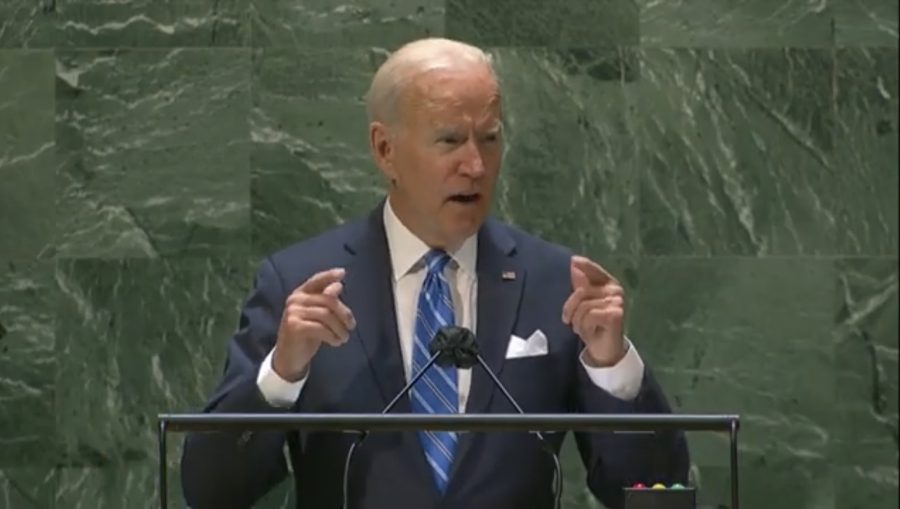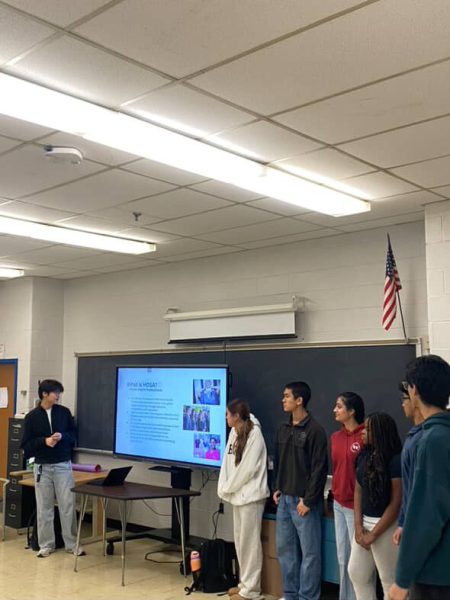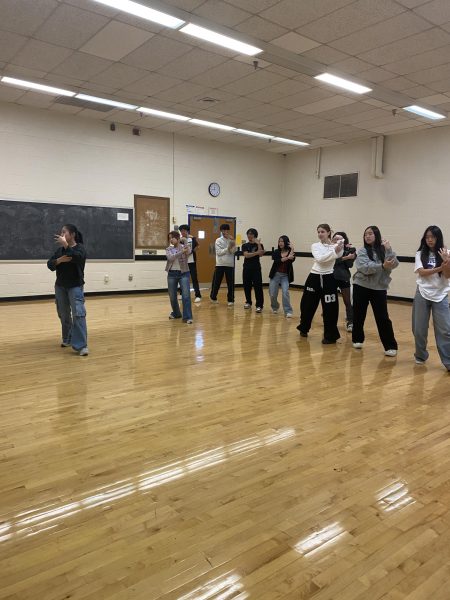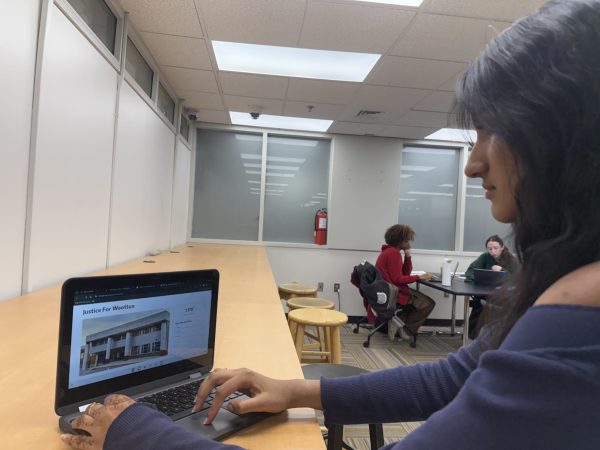UN General Assembly finds COVID-19 solution through hope, peace
Screenshot of NBC footage by Catie Russ
President Joe Biden gives an impassioned speech in-person at the UN General Assembly.
World leaders gathered together in-person and online to discuss the international issues that have been brought to the United Nation’s attention over the past year at the United Nations General Assembly (UNGA) on Sept. 14–Sept. 30.
According to the UN, the main theme of the General Assembly this year was “building resilience through hope,” with an emphasis on recovering from COVID-19. “Obviously, you want people to have hope in the fact that the future is going to get better, and you want them to have faith in their governments,” Model UN Director of Operations Angelina Hermosilla Roman said. “But, hope isn’t the thing that’s going to help them get vaccinated, it’s not the thing that’s going to get them access to the resources they need.”
Students were pleased with the theme. “Addressing COVID is a huge help in itself,” Model UN junior officer Katya Sorokin said. “Overall, the fact that the UN decided to undertake such a huge challenge, addressing such a large scale problem on a smaller scale in terms of getting to know countries – their individual stances on COVID mandates, on vaccines and the help they need – is a huge positive. I really think they addressed an importance that needed to be addressed at some point in time.”
At the UNGA, President Joe Biden spoke about the importance of working together as the world approaches what he deemed to be a turning point in history. He said that the United States will focus on cooperating with their allies and using peace to work together to combat COVID-19. “Bombs and bullets cannot defend against COVID-19, or its future variants,” Biden said. “To fight this pandemic we need the collective act and political will.”
Biden’s speech sparked discourse among students. “I think what Biden said countered what he’s proposing all around the world,” Model UN Director General Dylan Safai said. “The US is entering a very isolationist standpoint on global affairs, and what he said was very counter to that standpoint.”
Due to the COVID-19 pandemic, the number of delegates allowed in the General Assembly Hall at the UN Headquarters was limited, so member states such as Iran, Egypt, France, Indonesia, South Africa and Zimbabwe provided pre-recorded statements for the general debate. However, more than 100 leaders from all around the world still traveled to New York City to be there in person, coming from as far as Brazil, Israel, Jordan, Japan and South Korea. “Maybe there were people who were vaccinated but they thought it would be a good idea to show their country that everyone should be taking the necessary precautions to remain safe in the midst of a global pandemic,” Hermosilla Roman said. “But, as long as they were safe while they were in person, there’s also nothing wrong with meeting in person.”
The UNGA is the only gathering in the UN consisting of all the members, so it is often considered the most important UN body. According to the Charter of the United Nations, which is essentially the rulebook for UN procedure, the General Assembly’s purpose is to discuss, debate and make recommendations relating to world peace and security, covering topics such as countries’ development, human rights, international law and settling disputes between nations peacefully. “Overall, I think the UN is something positive and very beneficial to not only countries themselves, but to us, the citizens,” Sorokin said. “I think it helps countries get to know more about the problems we’re facing, the problems that other people are facing, and it just provides a whole new degree of awareness to our world.”
Your donation will support the student journalists of Thomas S. Wootton High School. Your contribution will allow us to purchase equipment and cover our annual website hosting costs.
Catie is a 2023 graduate.







